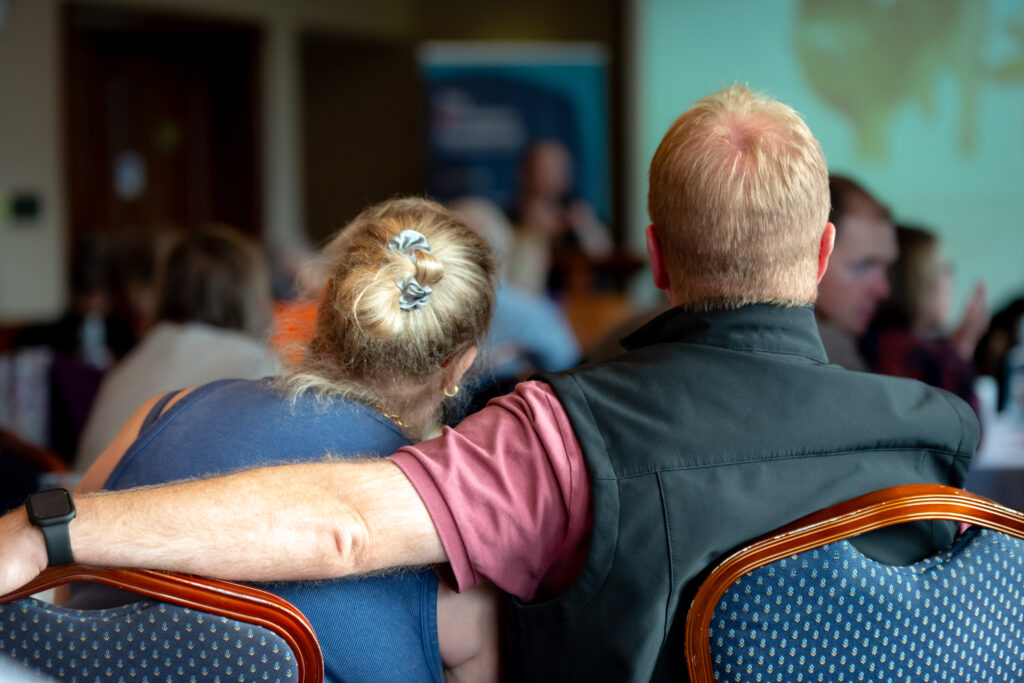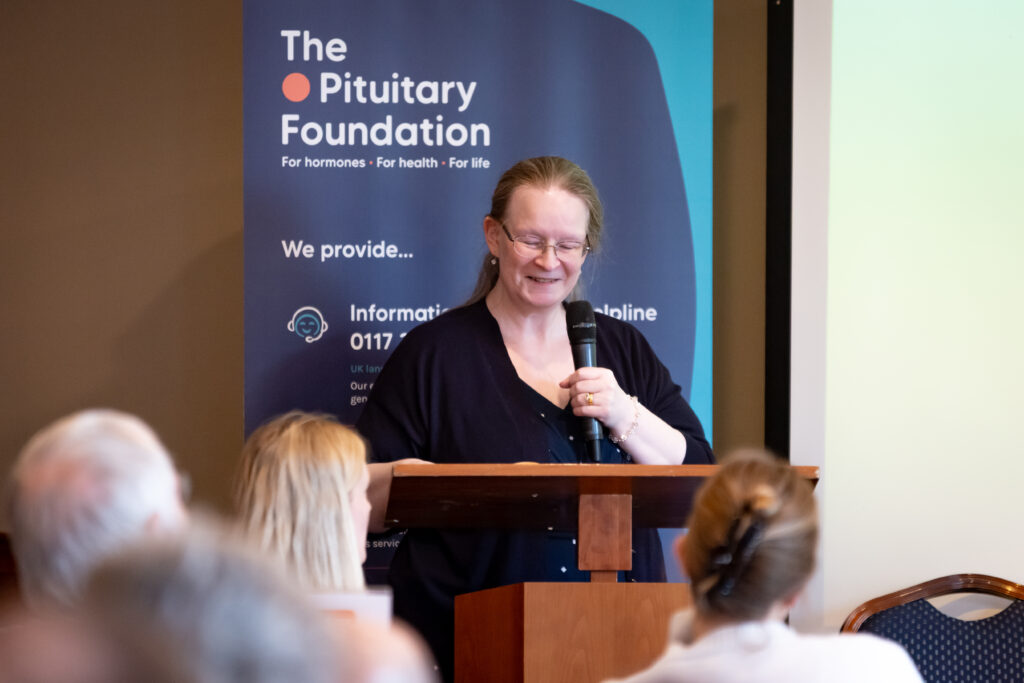Prefer to watch instead of read?
This information is also available as a video! Click on the button below to watch now.
Watch the video!Significant or major life events will happen or touch all of us in some way at some point. Indeed, being diagnosed with a pituitary condition would count as a major life event for most people. Unfortunately, having a pituitary condition doesn’t exempt you from, or inoculate you against, experiencing other kinds of major or key life events. For example, it’s vanishingly unlikely that you’ll never experience a bereavement, and while some people do live in the same house all their lives, most of us don’t, and so we must face the upheaval of moving.
I think major life events are significantly stressful for several reasons, some of which I’ve outlined here. For instance, they can happen unexpectedly (for example, a car accident or a loved one having a stroke) and we mostly have to deal with them alongside the other stuff we’ve already got going on in our lives. If I had to pick a key defining characteristic that marks significant or major life events from daily hassles, it would be that such significant things happen to us only rarely. They are less familiar to us, and we are therefore less practised at dealing with them. That unfamiliarity adds to our stress, general distress and anxiety and can lead us to feel a little (or a lot) lost and uncertain.
Additionally, life events can be overstimulating by exposing us to lots of unfamiliar people, places and things to do. With overstimulation can come overwhelm and problems sleeping, which can be the case even if the event is something we have chosen to do and are looking forward to (such as leaving home, or getting a new job). Research suggests that several key life events happening together in one year in the life of someone who is healthy can be enough to see them developing an illness because of the stress. Which would suggest that significant life events are things that have the potential to cause serious problems for people with long term health conditions such as pituitary conditions.
Learning as a coping strategy
As adults, others expect us, and we expect ourselves, to know how to do things. But why should that be the case for things that don’t happen all that often? We can put a lot of pressure on ourselves and make the stress worse if we don’t acknowledge that our experience of some things is very limited because we don’t do them all that often. Giving yourself permission to approach things with something of a beginner’s mind can be very helpful in reducing some of the stress. As Helen Macdonald puts it in H is for Hawk…
‘Being a novice is safe. When you are learning how to do something, you do not have to worry about whether or not you are good at it. But when you have done something, have learned how to do it, you are not safe any more. Being an expert opens you up to judgement.’
Telling others that you haven’t done this for a while, or indeed ever, can be useful in eliciting sympathy, advice and support.
Coping with the anxiety associated with key life events
Significant life events can make us anxious as well as stressed. Among other things, such as problems sleeping because our mind keeps churning, this can cause us to feel intimidated by the scale of something. For example, if we think about moving house, we see a massive mountain of stuff that must be sorted and packed, transported, unpacked and rearranged probably alongside a lot of DIY, decorating and carpet fitting.
Our brain reacts as though we’ve got to do it all, right now this minute and understandably we feel overwhelmed by the sheer scale and size of the task. Planning can help create a sense of how the task might be broken up to be dealt with in smaller chunks over time. And stepping back and using the mantra: “all I have to do now is…” can help us keep focussed on what it’s reasonable and possible to do in the here and now.
It also helps to identify familiar elements from the unfamiliar aspects of what you’re dealing with. There are lots of aspects of some things that you know how to do because you’ve done them before. For example, when my husband had his stroke I used to reassure myself by listing all the things that I already knew how to such as driving to and from the hospital, where to park when I got there, how to dial my friends phone numbers when I needed to talk.
Researching the less familiar aspects can help make them feel less strange. Even now, when I’m going to a place I’ve not been before I’ll research the routes I’ll need to use to get around using Google maps or something similar so I’ve got some idea of what the landmarks look like. If it’s possible to break the new aspects into smaller pieces that can be practised, that also helps to reduce the stress and anxiety that comes from dealing with the strange, rare and overwhelming.
The role of kindness and compassion
Rather than getting impatient for feeling a bit lost and confused, directing some compassion, tolerance and patience towards ourselves can be helpful. One of the kindest questions we can ask ourselves, one that really cuts to the heart of what we (or someone we care about) is finding difficult is:
“What troubles you the most about this situation?“

It can be surprising what sits at the bottom of a problem and where action really needs to be taken. You might think you already know the answer, but we all respond differently to major life events. It’s always a useful question to ask ourselves and/or others.
It can also help to think about the mindset with which we are approaching the life event. If our self-talk is very negative, that in itself will make things harder for us by ramping up the stress. That said, it is useful to acknowledge that something is difficult for you, but dwelling on that aspect is far from helpful. Research suggests that using your top three personal strengths when dealing with stressful situations and/or life events improves your confidence, leading to an increase in your feeling of mastery over at least some aspects of the situation.
If that feels too much, then borrowing from mindfulness can be helpful. I particularly like the aspect of friendly curiosity – the act of suspending your beliefs or mentally bracketing what you think you know about a situation in favour of exploring it with a view to getting to know and understand it properly. Anxiety often arises because we don’t properly understand something, taking the time to properly consider it can be helpful. If nothing else, it can help create time for you to appreciate what elements of it might be at least a little familiar and therefore for which you have some strategies to draw on.
Strategies to help you feel grounded in the face of significant stress
Last, and by no means least, if the whole thing feels strange, unfamiliar and overwhelming, then having some strategies to ground yourself can be helpful.
They can take many forms depending on what you’re trying to achieve. The simplest requires simply taking a big deep breath in and then letting it out very slowly. Sometimes, taking one breath is enough, other times you might need to do two or three. Breathing helps bring us back to ourselves and can settle and calm us.
Strong feelings of overwhelm can also be countered by creating a strong focus such as smelling (or sucking on) an extra strong mint. Likewise, pushing your feet hard into the floor or gripping the edge of something very hard. And while journal writing and artwork to help understand the swirling emotions can help for some people, for others soothing movement works better. Somatic movement, where you move slowly and gently from side to side or backwards and forwards in time to some slow and gentle sound can be very effective in returning you to yourself when you’re feeling stressed and overstretched.
No-one can escape major life events. There’s going to be something that happens at some point. It feels unfair that the Universe isn’t ordered in a way that says that if you’re already dealing with a significant health condition, you shouldn’t have to deal with anything else on top. But sadly, the world doesn’t work like that. What the world does have, is The Pituitary Foundation – a place you can go to talk to others who might have had similar problems to deal with. And a place where you can get advice about how to manage your pituitary condition in the face of stressful situations.
Prefer to watch instead of read? This blog post is also available as a video, which you can find below.
More about the author…

This blog post was written by Dr Sue Jackson, to go alongside her talk, titled ‘Managing Life Changes.’ Both this blog post and the talk were created for Pituitary Awareness Month 2025, as part of our ‘A Lifetime of Hormone Health’ campaign.
Dr Sue Jackson is an independent chartered psychologist, specialising in the link between mental and physical health. She is also a member of our Medical Committee, and provides essential support and insight to many areas of our work.








